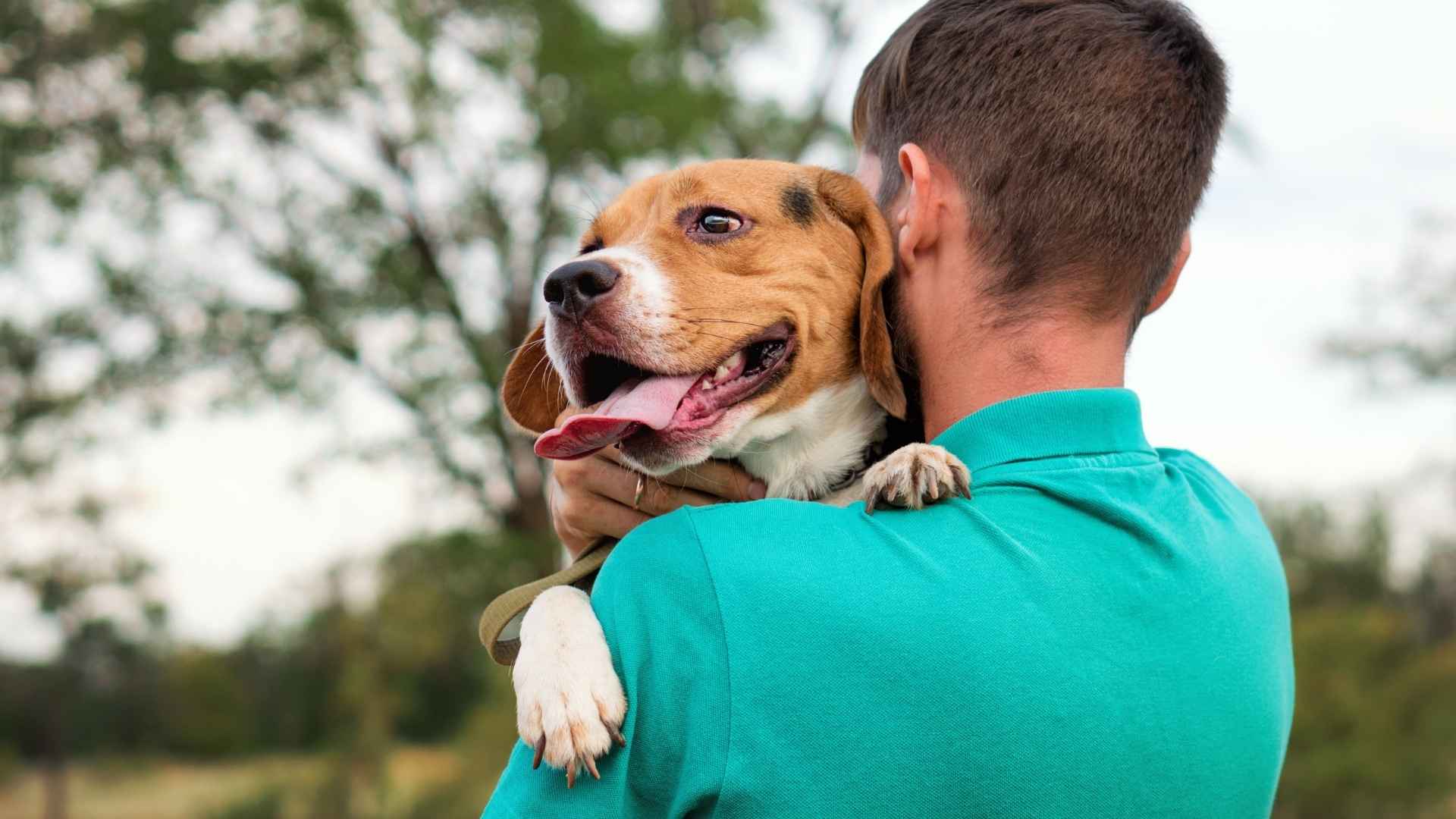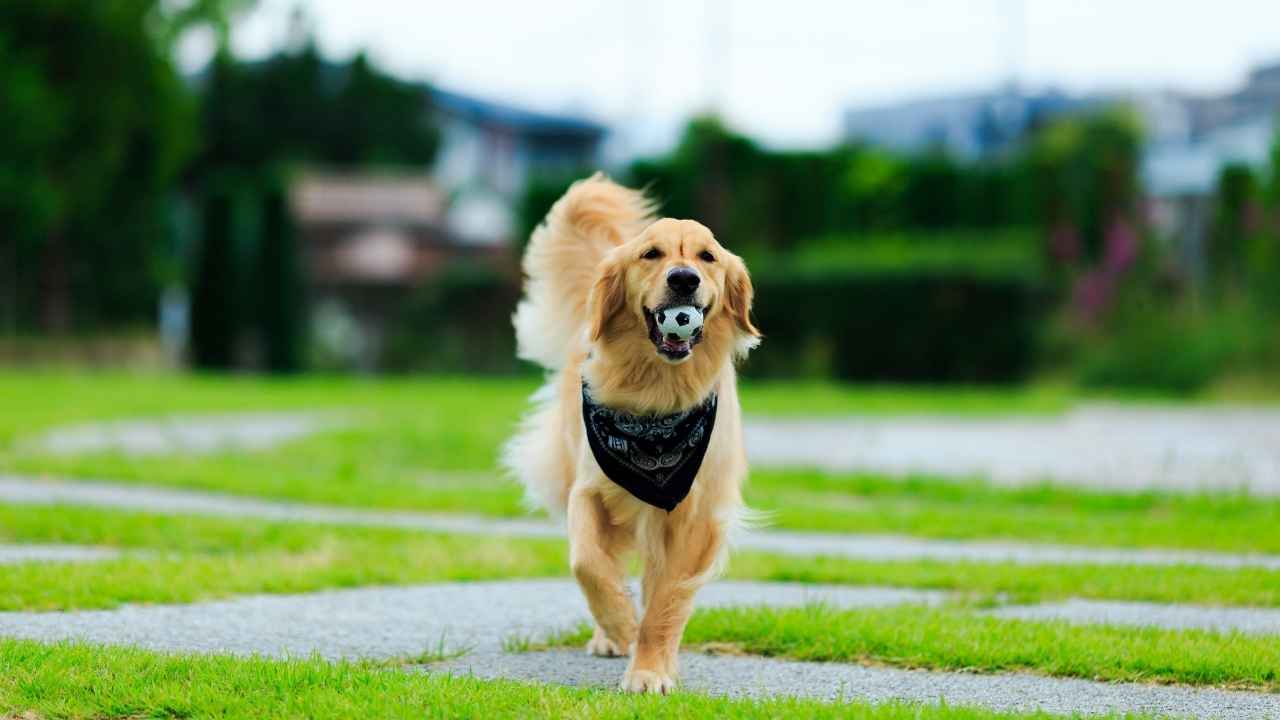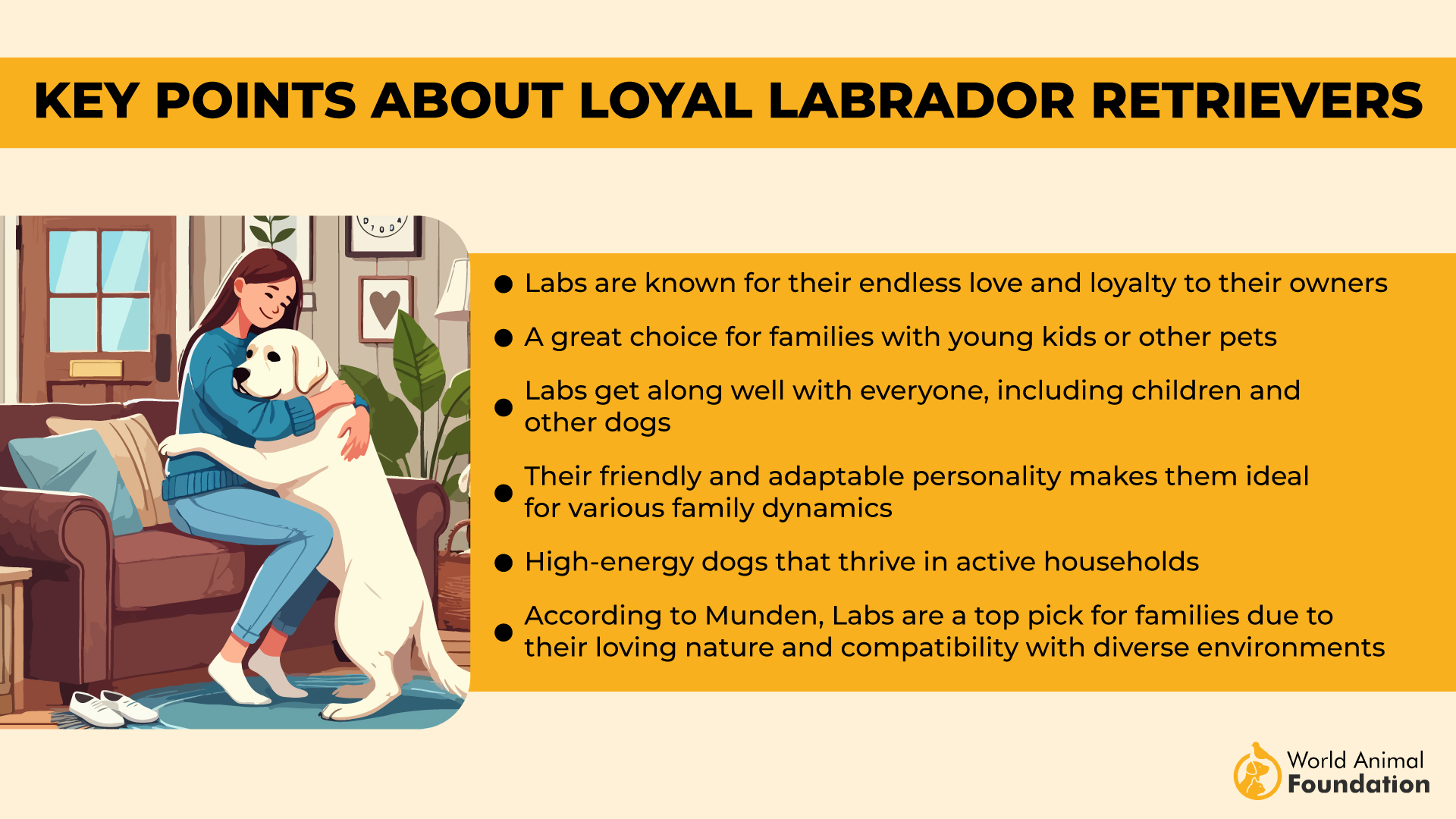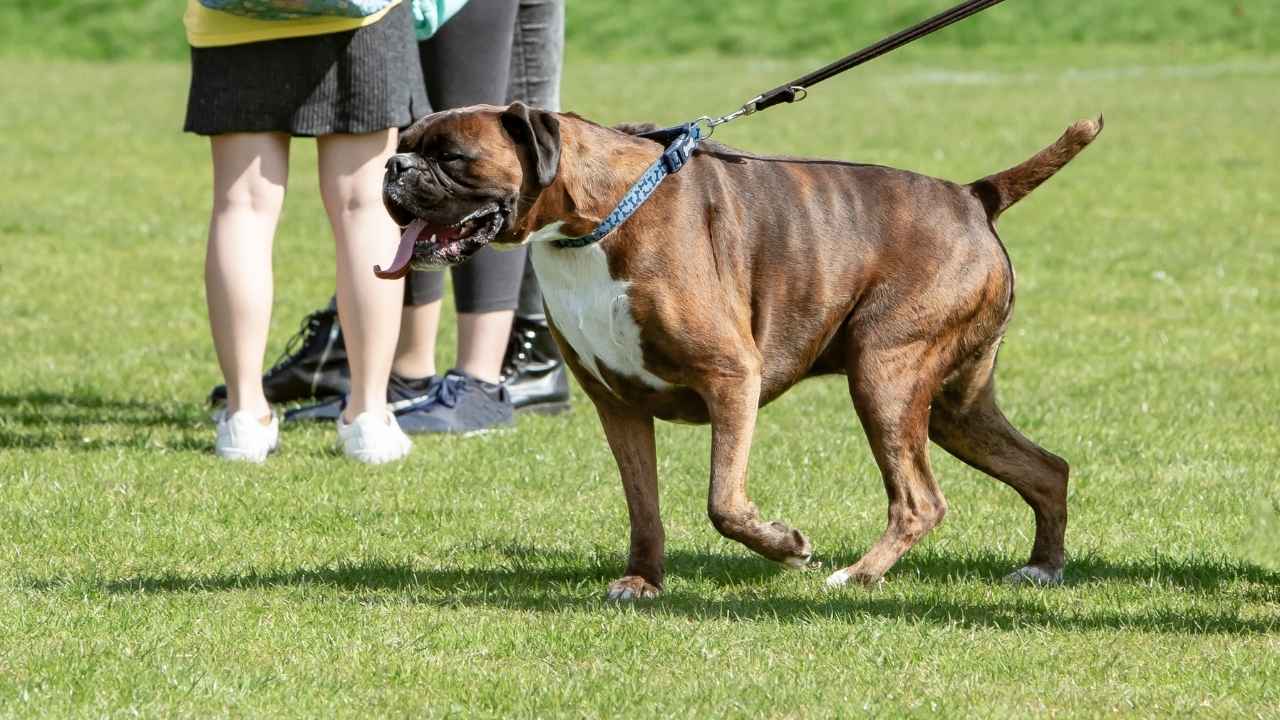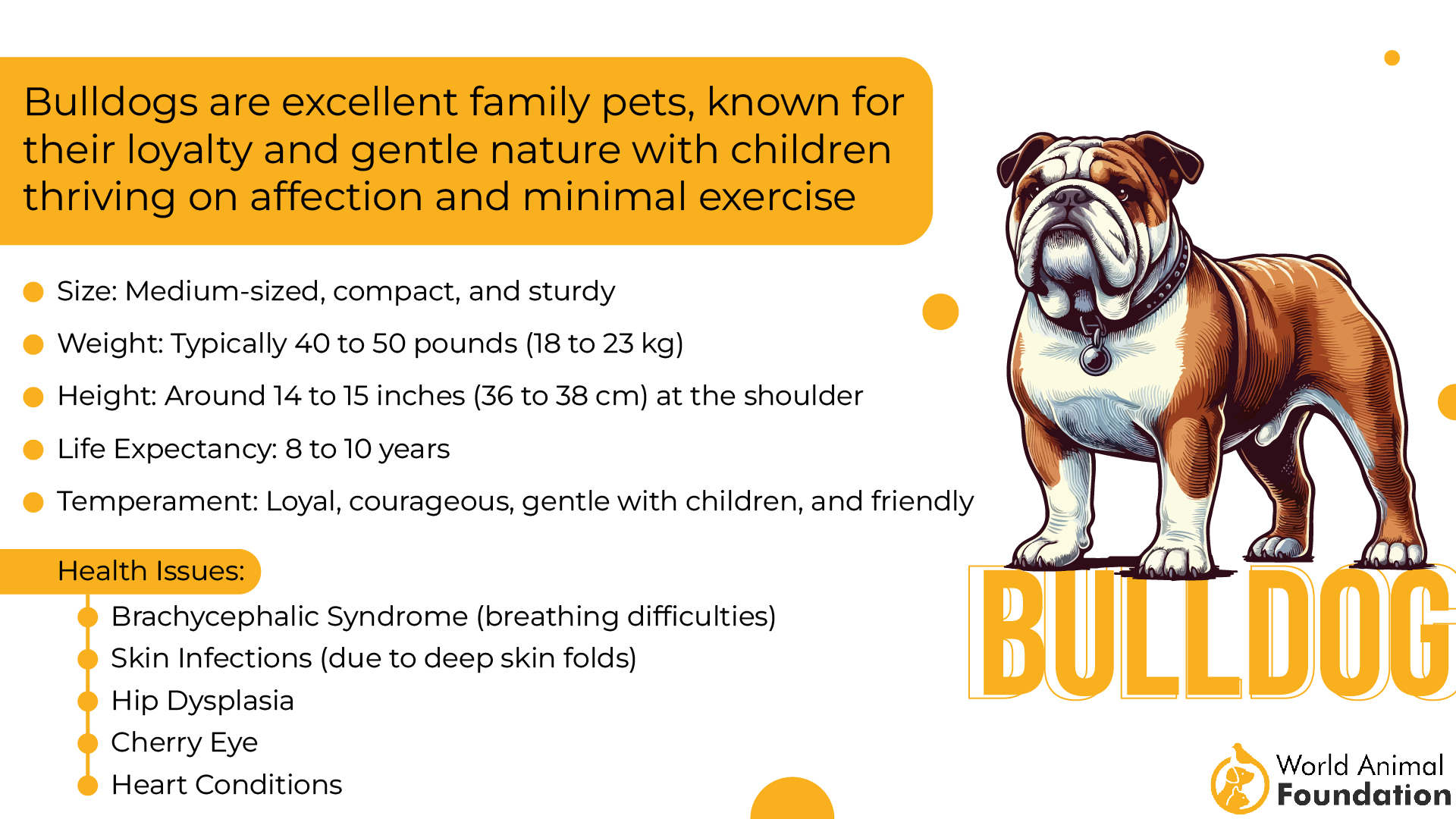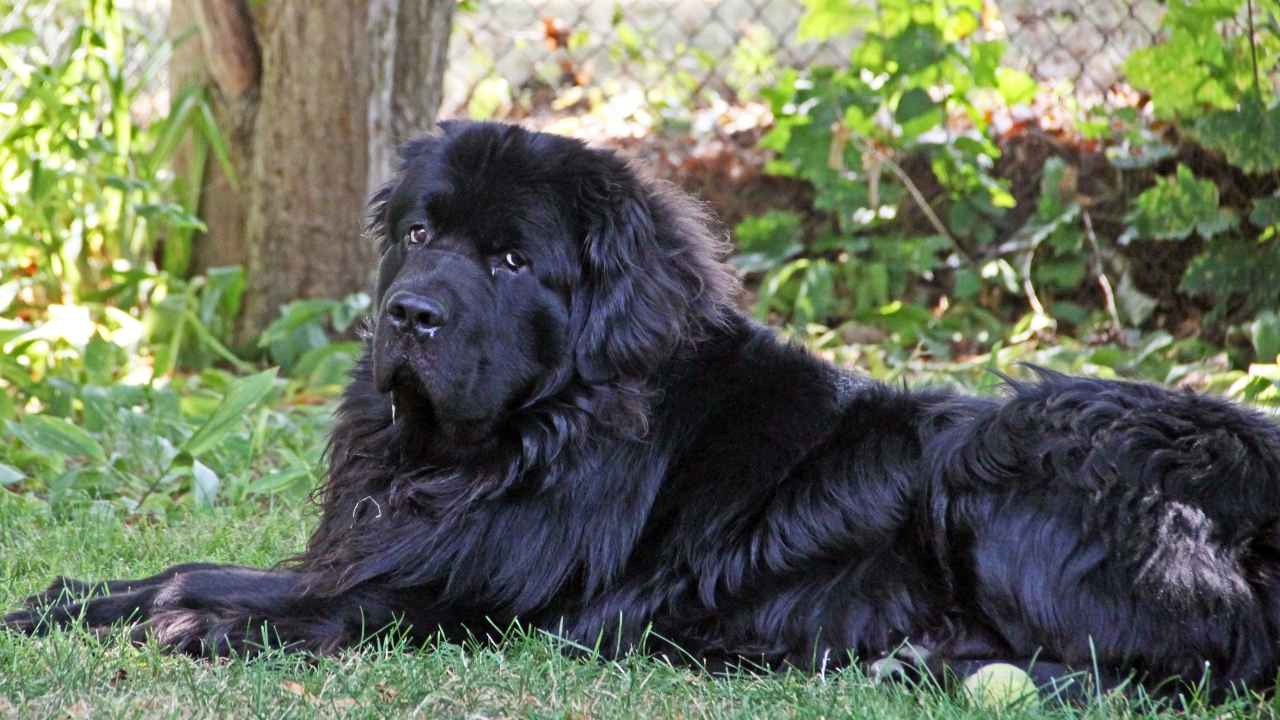When choosing a canine companion, many prospective dog owners prioritize temperament and safety, especially if children or vulnerable individuals are involved. Understanding which breeds are known for their gentle demeanor can greatly influence this decision. While any dog, regardless of breed, can be loving and non-aggressive with proper training and socialization, some breeds are internationally recognized for their friendly and calm nature. This guide delves into nine dog breeds that are the least likely to bite, exploring what makes them excellent family pets and loyal friends to people of all ages.
Dog bites are a serious concern, with recent data from the California Department of Healthcare Access and Information showing an increase in hospital visits for this reason. For first-time dog owners, especially those with children, this might sound alarming. However, it’s important to remember that a dog’s likelihood to bite often depends on its temperament and how it has been raised and trained.
Dogs may bite if they feel scared, startled, or threatened, or if they are protecting something valuable to them, such as food, toys, or puppies. While any dog can bite under extreme circumstances, most breeds are not aggressive without provocation.
Some dog breeds are naturally more gentle and less prone to biting, making them ideal companions for families. If you’re searching for a friendly, easygoing dog that’s unlikely to bite, here are 9 breeds that stand out for their calm and loving nature.
Dog Breeds Least Likely to Bite
1. Cavalier King Charles Spaniel
Cavalier King Charles Spaniels are among the gentlest and least likely breeds to bite, making them a safe and loving choice for families or individuals. Their primary goal is to please their owners, and they rarely show aggression. If a Cavalier does act out, it’s usually due to pain or an underlying health issue rather than an aggressive temperament.
These affectionate dogs thrive on companionship, following their owners from room to room and relishing every moment by their side—whether on the couch, in bed, or even during bathroom breaks. They’re excellent lap dogs and cuddle companions, perfectly suited for families or empty nesters.
However, Hill’s Pet notes that their beautiful, silky coats do require daily brushing to prevent matting, particularly during shedding seasons. While they might greet visitors with enthusiastic barking, Cavaliers are not naturally protective, preferring to share their love and charm with everyone they meet.
2. Whippet
Whippets are one of the calmest and least aggressive dog breeds, often far too relaxed to consider biting. Known for their gentle demeanor, they make wonderful companions for families and are particularly great around children. However, due to their sensitive nature, they may do best in homes with slightly older children who can understand when the dog needs space.
These gentle dogs thrive on a daily run but are just as happy spending the rest of their day lounging and snuggling with their pet parents. While their affectionate and friendly nature makes them perfect family pets, it also means they’re not suited for guard duty—their wagging tails are far more common than any sign of aggression.
According to WebMD, Whippets adapt well to various living situations, from spacious yards to small apartments, as long as they get their regular exercise. Quiet, low-maintenance, and easy to care for, Whippets are a graceful yet sturdy breed that fits seamlessly into any loving home.
3. Bernese Mountain Dog
The Bernese Mountain Dog is an ideal family dog, particularly for homes with ample space like farms or large yards. Despite their imposing size, these gentle giants are known for their friendly, calm, and non-aggressive demeanor. Highly intelligent and eager to please, they are a great choice even for first-time dog owners.
Deeply devoted to their families, Bernese Mountain Dogs are affectionate and patient with children and other pets. While they may occasionally show herding instincts, their behavior is typically gentle and easy to manage. Their loyalty and friendly nature also make them excellent watchdogs—they bond strongly with their families while remaining approachable and amiable toward strangers.
Bernese Mountain Dogs thrive on engagement and enjoy having tasks to keep them mentally and physically active. However, potential owners should be prepared for their grooming needs. With their thick double coat, Bernese Mountain Dogs shed heavily, especially during shedding seasons, making regular brushing a must to maintain their beautiful fur and reduce shedding around the home.
4. Golden Retriever
Golden Retrievers are one of the least likely breeds to bite, thanks to their long history of being bred for tolerance, patience, and a friendly temperament. Known for their gentle and affectionate nature, Goldens make excellent family pets and are particularly well-suited for first-time dog owners. Their sociable personality allows them to get along with everyone, including other animals, and they’re always eager to make new friends.
Beyond their role as companions, Golden Retrievers are highly intelligent and easy to train, excelling in various tasks such as hunting dogs, police work, and service roles. To keep these active and cheerful dogs happy, they need about two hours of physical activity daily, as recommended by the PDSA.
Goldens enjoy activities like long walks, bike rides, or playing fetch, making them ideal companions for active families. With their loyal and loving nature, they’re low-maintenance in terms of temperament and bring endless joy to any home willing to give them the attention and care they need.
5. Labrador Retriever
Labrador Retrievers are beloved for their gentle, friendly personalities, making them one of the least likely dog breeds to bite. Their affectionate and easygoing nature, combined with their love for people, makes them an ideal family pet. Labradors are fantastic with children and other animals, always eager to make new friends and be part of the action.
As active and energetic dogs, Labs thrive on exercise and attention. They enjoy activities like swimming, hiking, or a simple game of fetch, making them great companions for an active household. Originally bred as retrievers for hunting, their cooperative nature and eagerness to please make them highly trainable.
VCA notes that while Labradors are generally low-maintenance in terms of temperament, they do shed, so they may not be the best fit for allergy sufferers. Keeping them engaged with plenty of physical and mental stimulation is essential, as a bored Lab can sometimes turn to destructive behaviors.
6. French Bulldog
While any dog may bite in extreme situations, French Bulldogs are generally not aggressive, despite misconceptions about the breed. Known for their calm and affectionate temperament, Frenchies are an excellent choice for families with children due to their gentle and laid-back nature. Even as playful puppies, their “bites” are typically just harmless nips during playtime rather than signs of aggression.
French Bulldogs’ compact size and friendly disposition make them ideal family pets, but they do come with specific health considerations. One notable issue is Brachycephalic Obstructive Airway Syndrome (BOAS), a collection of breathing abnormalities related to their short snouts.
While many Frenchies live happy lives with proper care, some may require medical attention, including surgery, to manage severe cases. With the right attention to their health needs, French Bulldogs can make loyal, loving companions.
7. Boxer
Don’t let their muscular build and serious expression fool you—Boxers are among the most playful, patient, and affectionate dog breeds, making them unlikely to bite. Their gentle nature, especially around children, makes them wonderful family companions. While they’re energetic and full of enthusiasm, Boxers are rarely aggressive and form strong bonds with their families.
Known for their intelligence and loyalty, Boxers are easy to train, which helps minimize any risk of undesirable behavior. They’re excellent watchdogs, combining their protective instincts with a friendly demeanor toward other pets, strangers, and fellow dogs.
However, Britannica adds that their high energy and boisterous personality make them best suited for active households, as they can be overwhelming for the very young or elderly. Playful, loving, and quick to learn (despite a streak of stubbornness), Boxers bring endless joy and loyalty to any home.
8. Bulldog
The Bulldog, despite its tough name and rugged appearance, is one of the most gentle and least likely breeds to bite. With its loose skin, heavily wrinkled face, and iconic bow-legged physique, the Bulldog is as charming as it is distinctive. Beneath their muscular exterior lies a sweet and calm temperament that makes them excellent family companions.
Though they have a controversial history, Bulldogs have evolved into loyal and good-natured pets, adored for their playful yet easygoing disposition. While they can be a bit stubborn at times, their goofy side often shines through, endearing them to everyone they meet.
Orvis highlights that Bulldogs don’t require extensive exercise, as too much physical activity or exposure to hot weather can lead to overheating. Instead, they’re happiest lounging on the couch, enjoying cozy moments with their families. This breed’s relaxed nature and devotion make them a fantastic choice for households seeking a loving, low-maintenance companion.
9. Newfoundland
Newfoundlands, affectionately known as “nanny dogs,” are renowned for their gentle and loving nature, especially around children. Despite their massive size, they’re more likely to shower you with affectionate licks than show any aggression. Their friendly demeanor makes them a favorite among families, and their intelligence and trainability ensure they adapt well to various households.
However, their sheer size and strength might require supervision around small kids or elderly family members. Known for their moderate energy levels, Newfoundlands thrive on activities that engage both their minds and bodies.
Swimming is a particular favorite, thanks to their webbed feet and a history rooted in water rescues. With consistent training, these dogs are easy to manage, and their deep bark can be channeled appropriately.
Conclusion
When choosing a dog for your family, focusing on breeds known for their gentle temperament and minimal aggressive tendencies is key. Other dogs like Labrador Retrievers, Bichon Frises, and Basset Hounds are generally friendly and make wonderful companion dogs for family environments. Even big dogs like Golden Retrievers or giant dogs such as Newfoundlands are considered some of the safest dog breeds, thanks to their gentle nature and suitability for proper training and socialization.
While no dog is completely immune to aggressive behavior, most are not genetically predisposed to act aggressively unless provoked or poorly handled. Proper socialization and obedience training from an early age are essential for any breed, whether you’re adopting a small dog or an adult dog. Even breeds like Pit Bulls and Cocker Spaniels, which can sometimes face misconceptions, can thrive as loving family pets with proper care. Ultimately, understanding your dog’s needs and ensuring they are well-trained can prevent dog aggression and create a safe, happy environment for everyone involved.
In conclusion, selecting a dog breed with a lower likelihood of biting is an important consideration for families and individuals seeking a pet that is both friendly and safe. Breeds such as the Golden Retriever, Labrador Retriever, and Cavalier King Charles Spaniel are known for their gentle temperaments and sociable nature, making them excellent companions. Understanding each breed’s characteristics and ensuring proper training and socialization can significantly reduce the risk of biting incidents. Ultimately, a loving and responsible environment plays a crucial role in fostering a dog’s behavior, regardless of the breed.

